Reading comprehension Normal Multiplication Worksheets for Ages 6-8
5 filtered results
-
From - To
Develop your child’s math and literacy skills simultaneously with our Reading Comprehension Normal Multiplication Worksheets for ages 6-8. These worksheets are designed to blend multiplication practice with reading activities, fostering a deep understanding of both subjects. Through engaging word problems and narratives, children not only practice multiplication facts but also enhance their reading comprehension abilities. Perfect for classroom settings or at-home learning, these worksheets align with educational standards, ensuring your young learner builds a solid foundation in math while improving their reading skills. Make learning fun and effective with our unique, integrated approach!
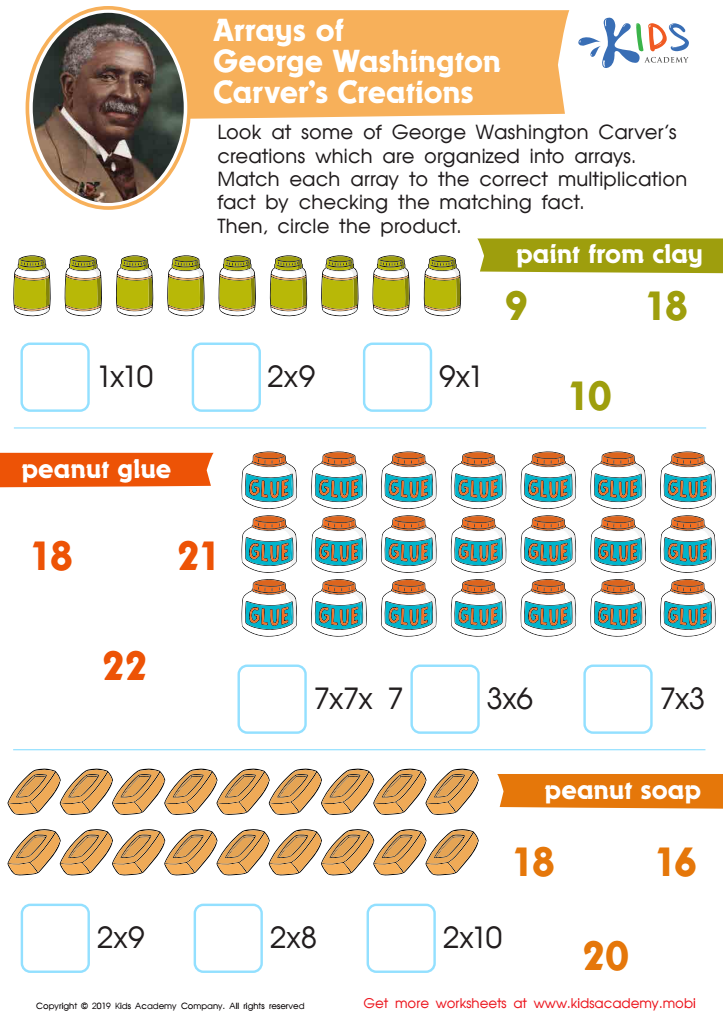

Arrays of George Washington Carver’s Creations Worksheet
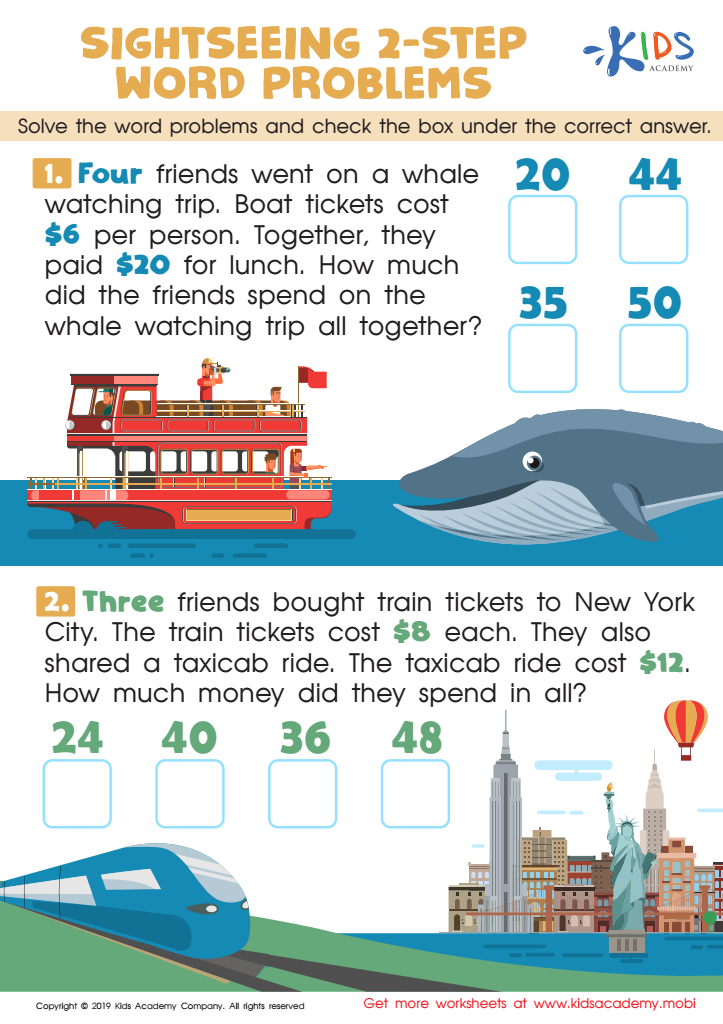

Sightseeing 2-Step Word Problems Worksheet
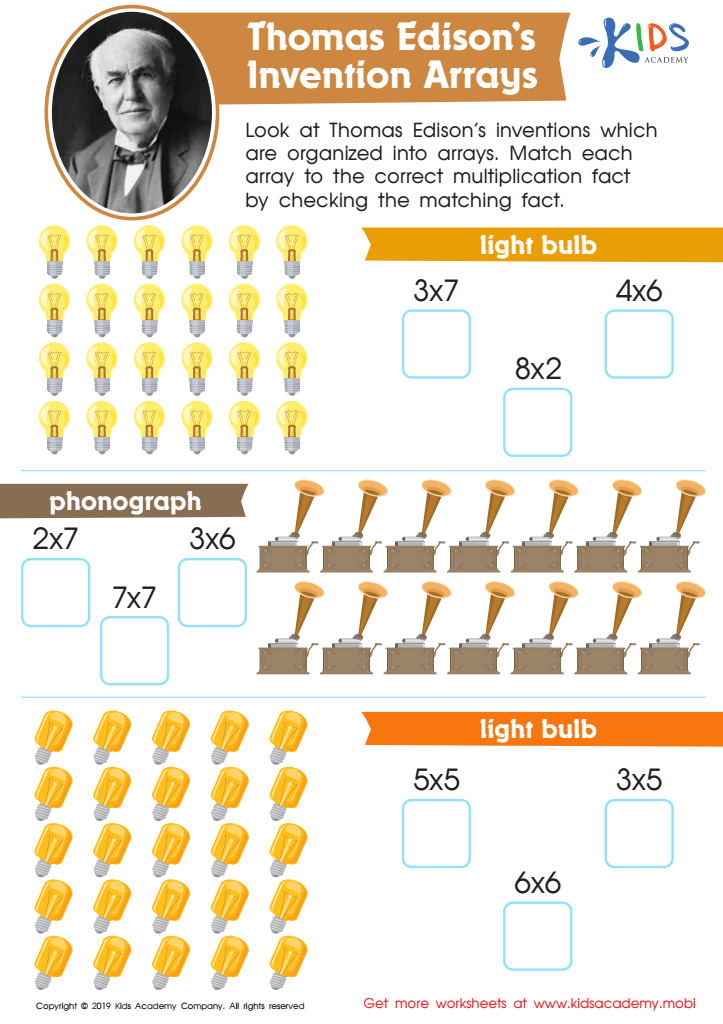

Thomas Edison’s Invention Arrays Worksheet
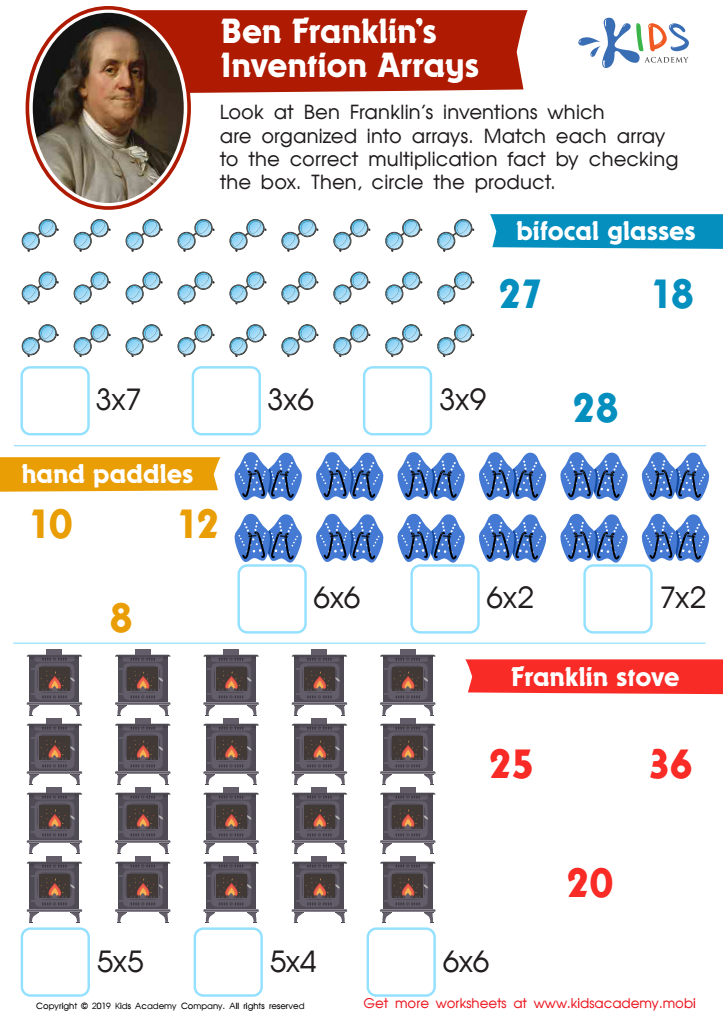

Ben Franklin’s Invention Arrays Worksheet
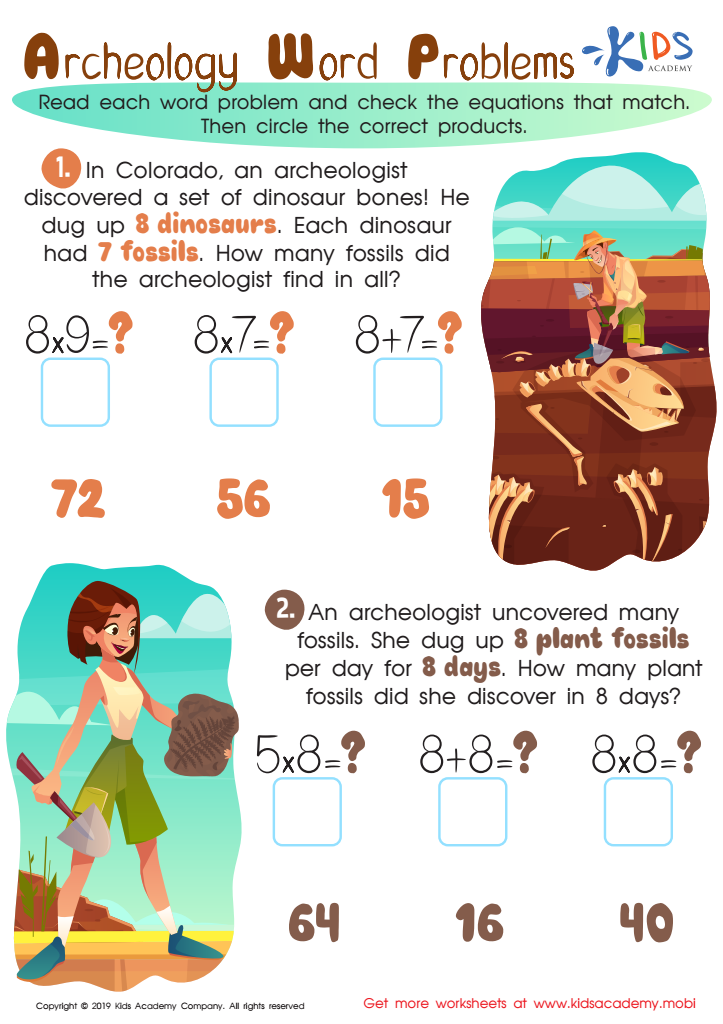

Archeology Word Problems Worksheet
Reading comprehension and basic multiplication are critical skills for children ages 6-8, laying the foundation for future academic success and lifelong learning. At this age, kids transition from simply learning to read to reading to learn. Strong reading comprehension abilities allow them to understand and process information, follow instructions, and develop critical thinking skills. These capabilities are essential for grasping more complex subjects as they grow older, such as science, history, and literature.
Multiplication, a cornerstone of elementary mathematics, not only assists in arithmetic but also introduces children to mathematical reasoning. Understanding multiplication at a young age helps children recognize patterns, solve problems more efficiently, and builds a strong mathematical foundation. This, in turn, boosts their confidence in tackling more advanced mathematical concepts like division, fractions, and algebra.
Parents and teachers play a pivotal role in nurturing these skills. Engaging reading materials and interactive activities, like story problems incorporating multiplication, can spark children's interest and make learning both fun and meaningful. Prioritizing these skills equips children with the tools they need to excel academically. This preparedness can open doors to higher education and varied career opportunities, forming the bedrock of future learning and personal growth.
 Assign to My Students
Assign to My Students















